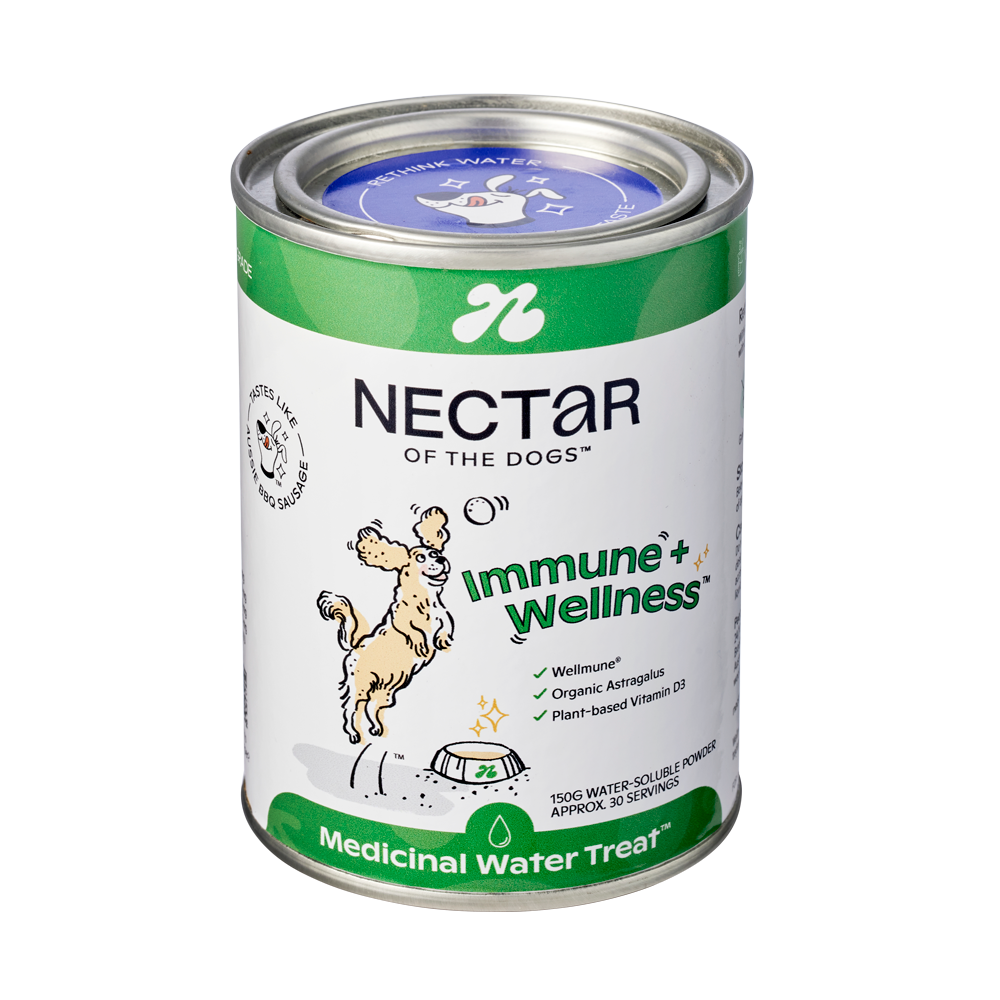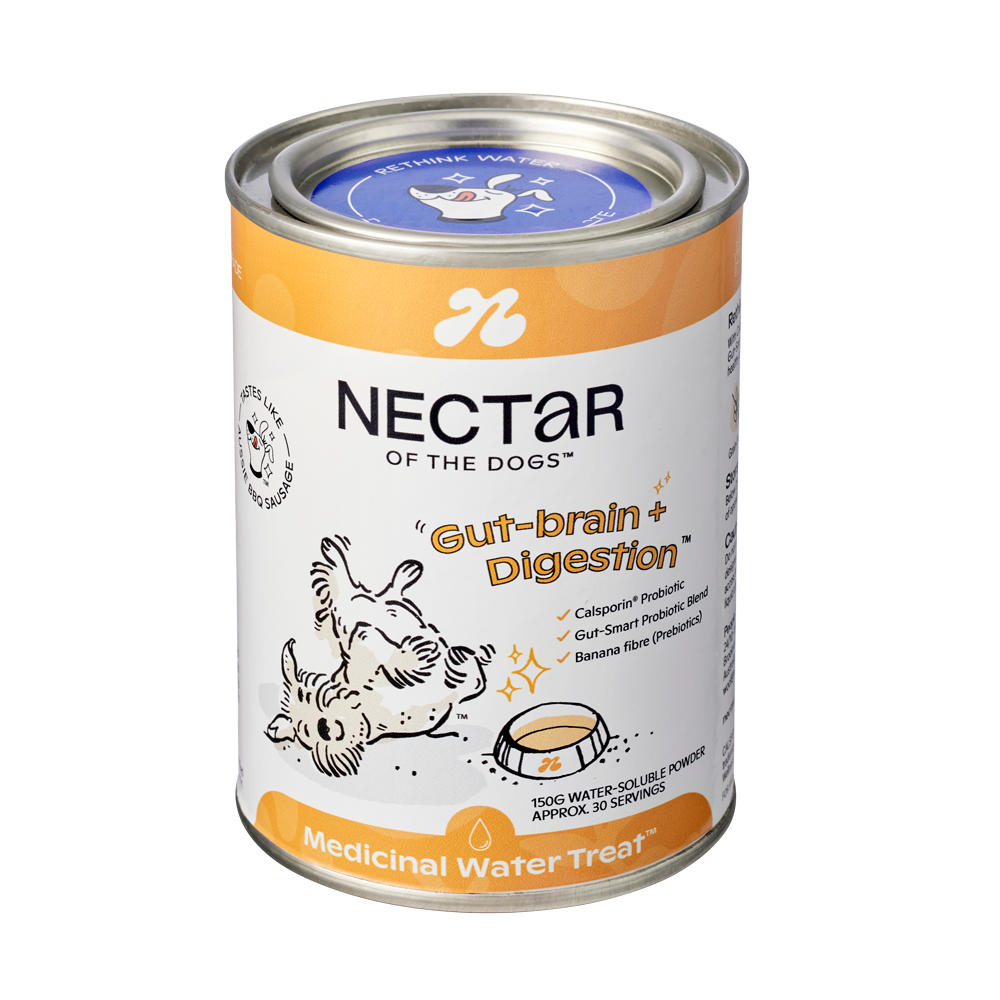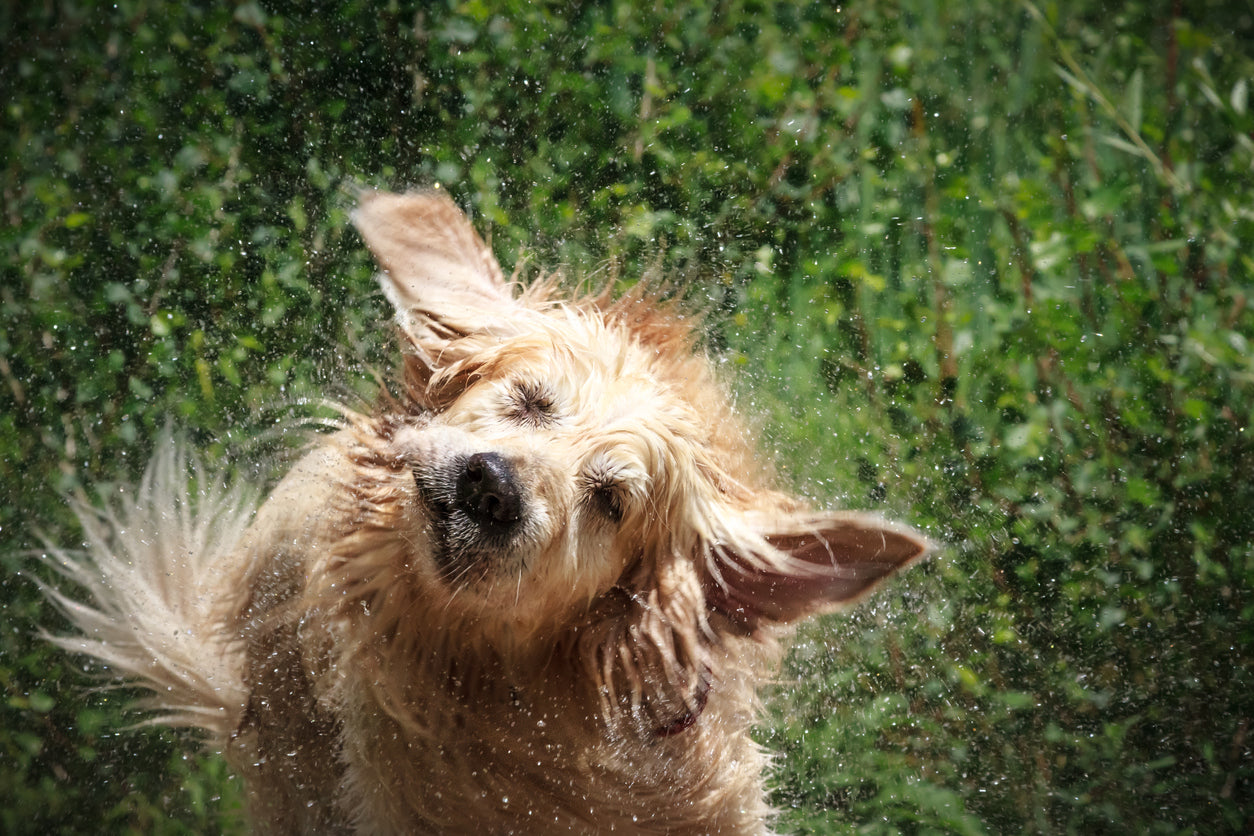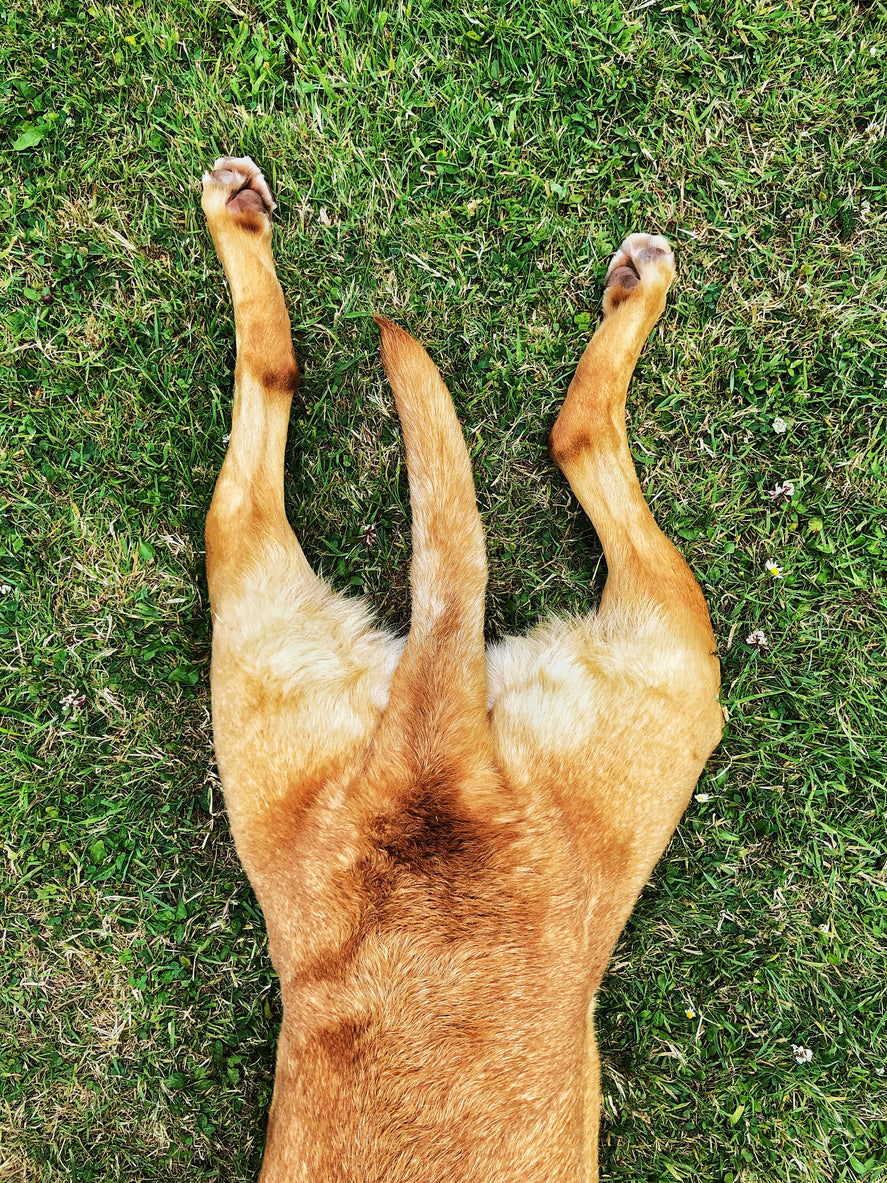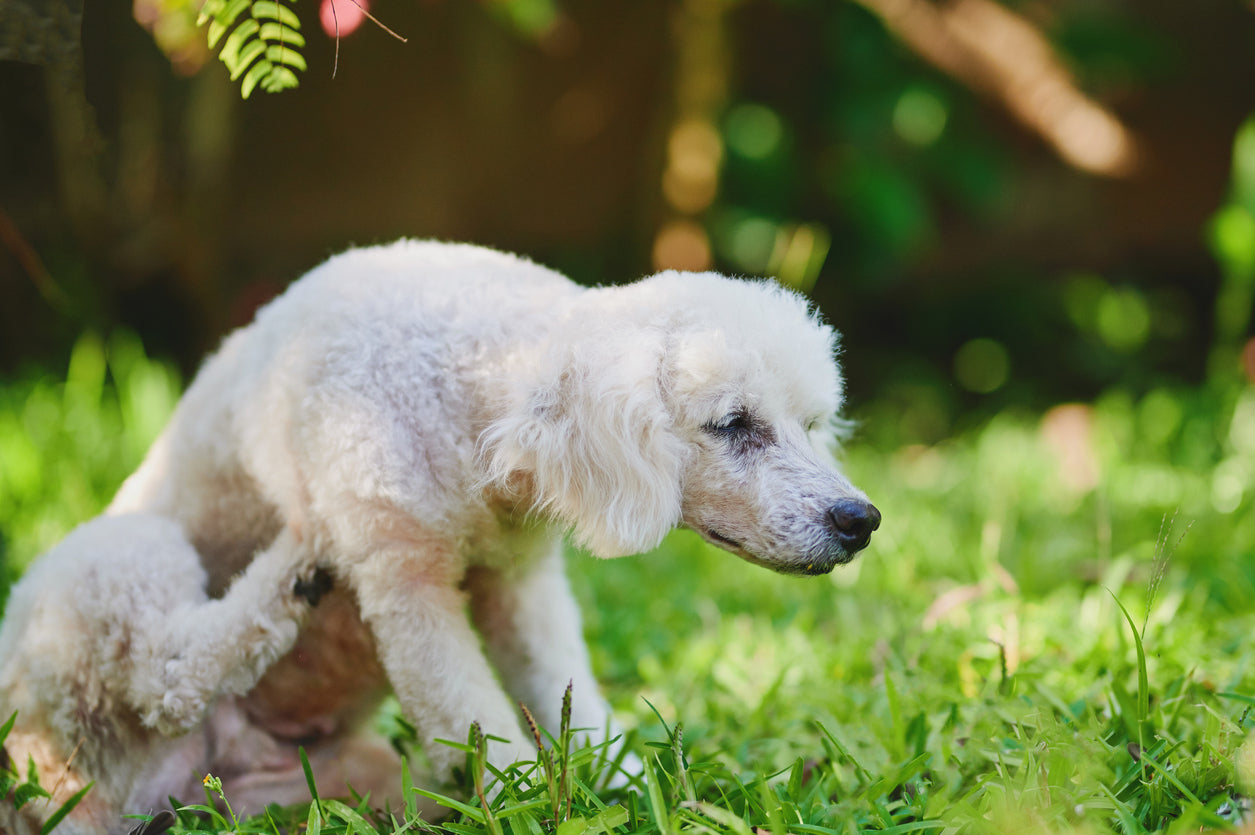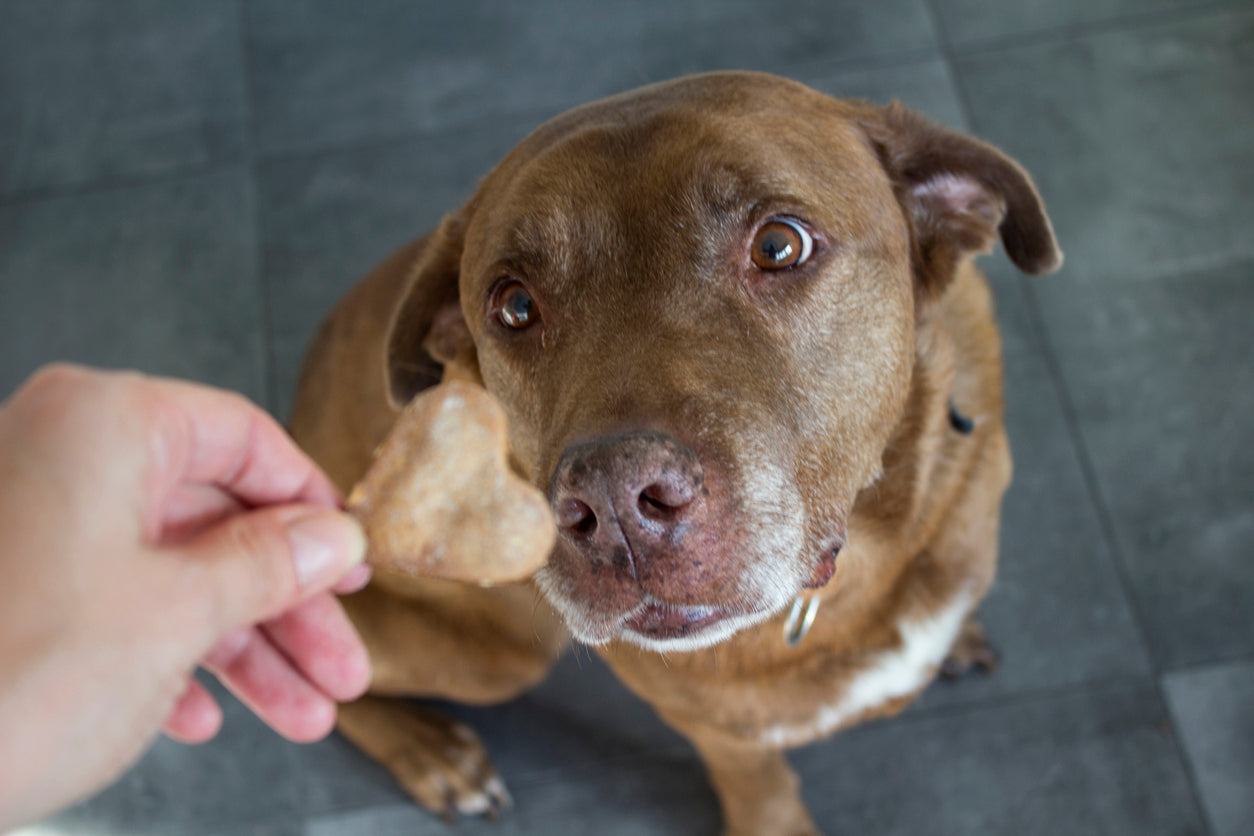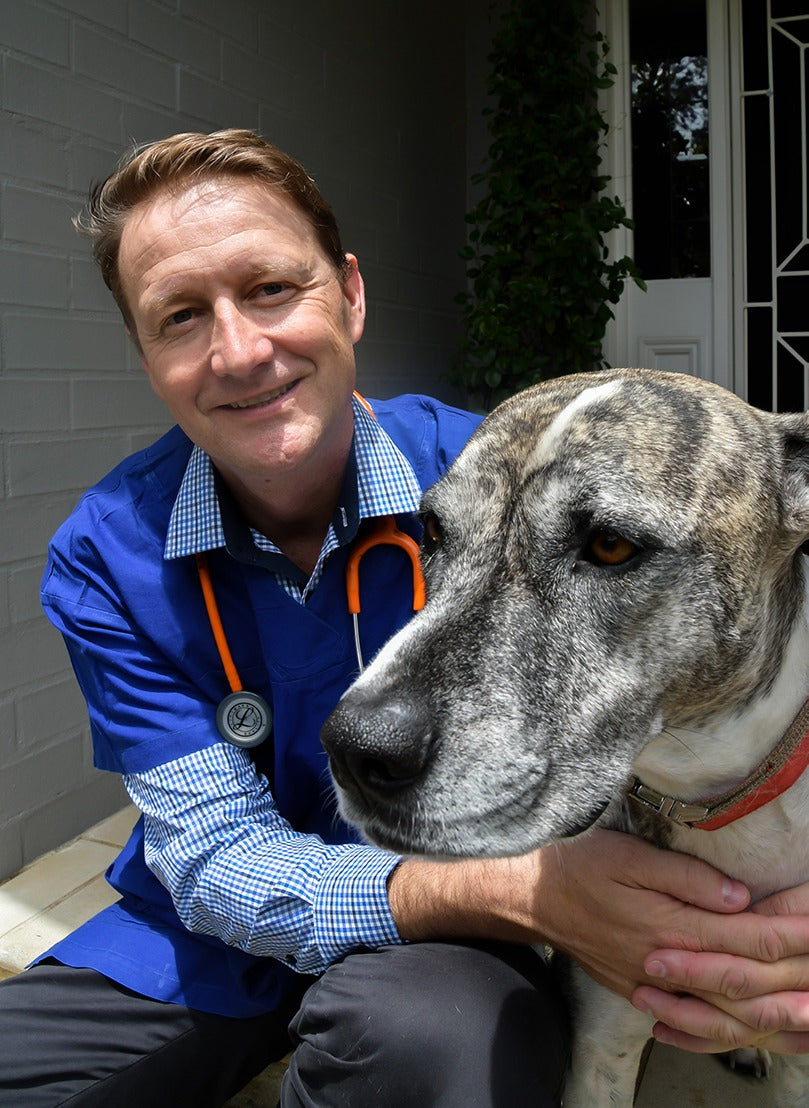At what age do dogs become “senior”?
You may notice that your furry friend seems to be ageing a lot faster than you are.
Even in the space of a year, a pup who was once running tirelessly around your local park may seem slower and needing more rest.
But why?
Well, this is because dogs age a lot faster than humans. And as our furry friends get older, there are many new things to pay attention to.
If you’re new to being a dog parent, this may seem quite confusing. But don’t fret, because we’ll be unpacking everything you need to know about the ageing process in dogs.

How quickly do dogs age?
We know that dogs age faster than humans, but the question of how fast is still being vastly debated.
There’s no quick fix to determining your dog's age, but there are a few theories and factors that can help you gauge an idea of how old your furry friend is.

Theory 1: The 7:1 ratio
The oldest and most circulated theory about ageing in dogs is that one human year is the equivalent of 7 dog years.
Given this theory, if your pup has been alive for 3 human years, this makes them 21 in dog years.
Sounds simple, right?
Well, apparently too simple.
Whilst this theory is still very dominant, it’s been deemed inaccurate by many theorists and vets, as it’s not backed by science. As such, this equation has been criticised for being too broad, as it doesn’t account for factors such as weight, size and breed.
Theory 2: Breed and size both influence the ageing process
It’s been found that smaller dogs tend to live longer than larger dogs. Not only that, but certain breeds have been shown to outlive others.
These findings really challenge the 7:1 theory, giving rise to a second theory which is considered more accurate when it comes to ageing.
This theory holds that the ageing process is different for each dog, depending on their size and breed.
Whilst this theory makes the maths more complicated, it acknowledges that each pup is unique and will therefore age at a different rate.

Dogs age more in their early years
If these theories aren’t confusing enough, it’s also been found that dogs age more in their early years.
In fact, the first two years of a dog’s life are said to have a huge impact on their development and thus their age.
Therefore, depending on their size and breed, it’s been found that:
- The first year of a dogs life is the equivalent of around 15 human years
- The second year is the equivalent of around 9 human years
- Every year after that, dogs will age around 4 human years
These findings suggest that dogs don’t age as quickly as the 7:1 theory implies. They also highlight that comparing dog years and human years is an insufficient way to calculate your dog’s age, as our furry friends age more in their developmental years.
So, how old is my dog?
There’s no real answer when it comes to calculating your dog's exact age. Their ageing process is complex, and what may be old for some dogs is considered young for others. However, you can gauge a general understanding of your pup’s age based on their size and their breed.
What age do dogs become seniors?
When it comes to your dog’s age, we have seen that there are no straightforward answers. So, as you may probably expect, the age at which dogs become seniors varies.
Generally speaking, most medium size dogs become seniors after being alive for around 7 to 8 human years. But again, this varies based on their breed and size.
Smaller dogs tend to have longer lifespans (up to 20 years) and become seniors slightly later, around 9-10 years, whilst larger and giant dogs tend to enter their senior years after 5-6 years..
Why do I need to know my dog’s age?
It’s important to know when your dog becomes senior, as their lifestyles and requirements will change. You may even notice that they go grey - just like we do.
As your dog ages, you’ll need to pay more attention to any changes in their bodies and behaviours. You’ll also need to alter their diet and exercise requirements, so it’s crucial to know when to give your furry friend some extra TLC.
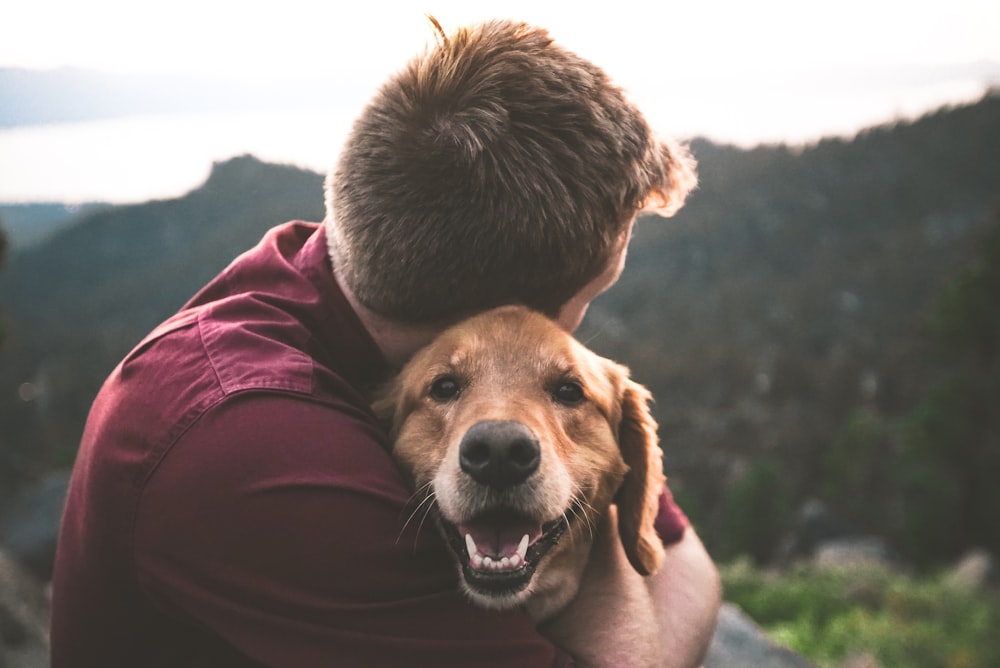
What happens when dogs become seniors?
Like humans, some dogs will be more affected by the ageing process whilst others will age more gracefully. In general, when dogs age, they lose the ability to function as well as they did when they were younger. As a result, senior dogs may suffer from:
- Weaker joints and subsequent joint problems like arthritis leading to reduced mobility
- Reduced vision or cloudy eyes
- Lethargy
- Weight gain, leading to other issues and illnesses
- Increased risk of cancer
- Loss of hearing
- Cognitive dysfunction
- Weaker immune system
- Incontinence or increased urination
- Loss of teeth or periodontal diseases leading to bad breath
- Weaker organ functioning, posing risks to their heart and kidney health
If you notice any of these changes, it’s important to see your vet to determine an appropriate plan moving forward. Frequent check-ups will allow you to manage any health concerns and prevent illnesses from occurring or worsening.
Maintaining a diligent approach will ensure that your dog gets the most out of their life, even in their golden years.
Help your dog live their best life
Ageing in dogs is a complex and varied process. But thanks to modern care practices, dogs are now living longer than ever before.
So if you want to enhance your dog’s life, it’s important to take care of them, no matter how old they are. Because take it from us, seeing your dog grow old and healthy is a rewarding process.
Besides, the older your dog gets, the more loveable they become. This is a proven fact.
Do you want your dog to live a happy and healthy life? Shop our range.
